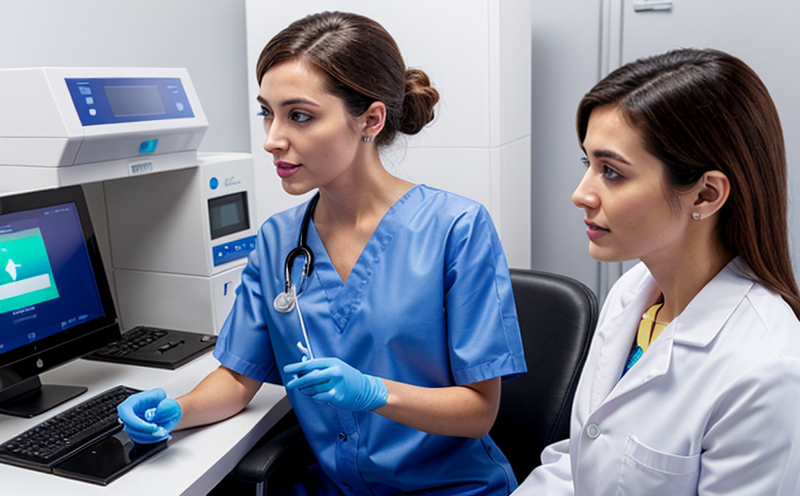Molecular Identification of Yeast and Mold Strains in Food Production
The molecular identification of yeast and mold strains is a critical process in food production. It ensures that products meet quality standards, comply with regulations, and maintain consumer confidence.
Yeast and molds play crucial roles in the fermentation processes that transform raw materials into value-added food products such as bread, cheese, wine, beer, and many others. However, these microorganisms can also cause spoilage or contamination if not properly controlled. Thus, accurate identification of yeast and mold strains is essential to ensure product consistency, safety, and quality.
Traditional methods for identifying yeasts and molds have been based on phenotypic characteristics like colony color, texture, and growth patterns. These methods are time-consuming and often lack precision, especially when dealing with closely related species or strains. Molecular techniques, particularly polymerase chain reaction (PCR) followed by sequencing, offer a more accurate and reliable alternative.
Our laboratory uses advanced molecular tools to identify yeast and mold strains in food products. We can differentiate between various strains of the same species based on their genetic markers. This capability allows us to provide detailed information about the microbial composition of your product, which is essential for quality assurance and compliance with regulatory requirements.
The process begins by collecting samples from different stages of production or finished goods. These samples are then prepared according to standard protocols. DNA extraction followed by PCR amplification targets specific regions within the genome known to vary among strains. The amplified DNA fragments are sequenced, and the resulting sequences are compared against databases containing reference sequences for various yeast and mold species.
Our team of experts interprets these sequence data to determine the exact identity of each strain present in your product. This information can help you make informed decisions about process optimization, ingredient sourcing, or even formulation adjustments aimed at enhancing product quality.
In addition to identifying individual strains, our service also includes quantification capabilities using quantitative PCR (qPCR). This allows us to assess the relative abundance of different yeast and mold species within your products. Understanding these ratios can be vital for ensuring proper fermentation conditions and preventing unwanted microbial growth that could lead to spoilage.
The precision offered by molecular identification methods makes them invaluable tools not only in quality control but also in research and development efforts aimed at improving existing processes or developing new innovative products leveraging the unique properties of specific strains. By providing comprehensive insights into the microflora associated with your food items, we enable our clients to achieve higher levels of product safety, consistency, and innovation.
Benefits
- Accurate and reliable strain differentiation
- Quick turnaround times for results
- Comprehensive understanding of microbial diversity in food products
- Enhanced compliance with regulatory standards
- Precision in optimizing fermentation processes
- In-depth insights into supply chain microbiology
- Support for R&D initiatives involving yeast and mold strains
Quality and Reliability Assurance
Our commitment to excellence extends beyond just providing accurate results; we ensure that every step of the process adheres strictly to quality assurance protocols. From sample collection guidance to final report preparation, each phase is meticulously documented and reviewed to maintain high standards.
We utilize cutting-edge technology and follow rigorous procedures laid out by international bodies like ISO and EN to guarantee consistent accuracy in our findings. Our expertise lies not only in executing these tests but also interpreting their outcomes correctly so that you can act on them effectively.
By partnering with us, you gain access to a team of highly trained professionals who bring decades of experience in microbiology, molecular biology, and food science combined with state-of-the-art instrumentation. Together, we work towards ensuring the safety, quality, and integrity of your products at every stage of development and production.
International Acceptance and Recognition
The methodologies employed by our laboratory are recognized globally for their robustness and reliability. Our compliance with international standards ensures that our services meet the highest global benchmarks.
ISO 14695:2013, which specifies microbiological methods for the enumeration of fungi in foods, forms part of the framework we follow rigorously. Similarly, EN ISO 20782:2013 provides additional guidelines that enhance our approach further. These standards not only dictate how samples should be handled and analyzed but also set expectations regarding precision and accuracy.
Recognizing that food safety is a global concern, adherence to such internationally accepted protocols helps build trust among consumers worldwide while ensuring regulatory compliance across borders. By choosing this service, you ensure your products are aligned with these high standards, thereby paving the way for broader market acceptance.





